On paper, Rosetta Stone seems like the perfect app for learning Chinese. It creates an immersive environment and stimulates how we naturally acquire languages. There is no translation, so you learn the word more deeply. Also, it’s very very expensive, so it must be good right?
Well, unfortunately, maybe not so much.
Check out my guide on How To Learn Chinese
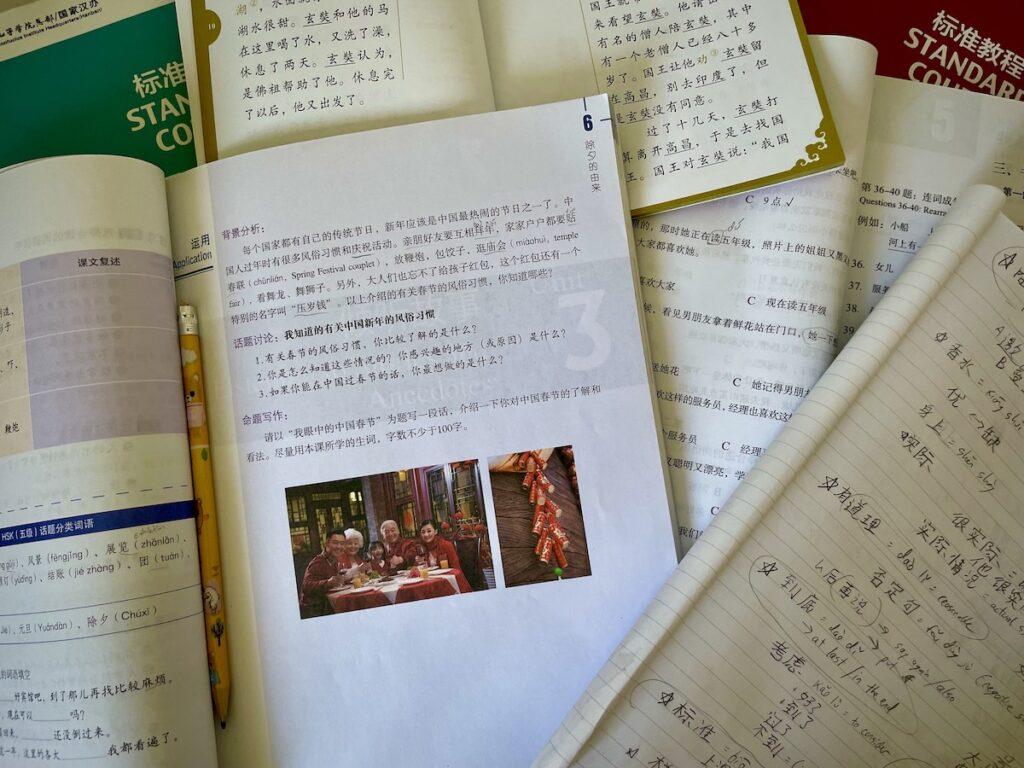
I’ve shared my personal experience going from being an absolute Chinese beginner to being able to discuss such complex topics as my favorite Harry Potter movie in Mandarin. Hopefully, my experience can help you to learn Chinese as much as it’s helped me.
I’ve wasted a ton of time learning Chinese with Rosetta Stone
I used Rosetta Stone to study both Spanish and Chinese. I actually paid for the Chinese version. At first, it seemed very helpful. I could immerse myself in Chinese without the hassle of flights and visas.
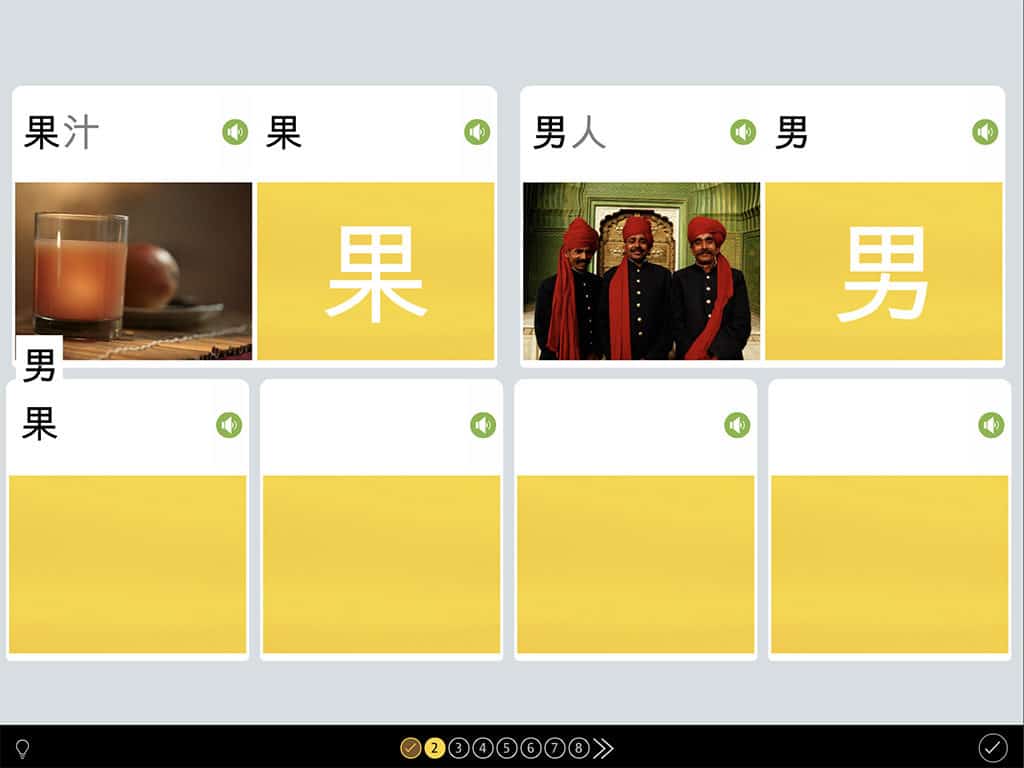
For example: there’s a picture of a red ball. A voice says “zhe ge qiu shi hong se de” and you read “这个球是红色的.” Eventually, you figure out “oh, okay, this ball is red.”
Because I had to do the work of making the connections between the words and the image, I now remember that this ball is red much better than if somebody had just told me “hey, this is how you say “this ball is red” in Chinese.”
This whole figuring out things through context method of teaching is basically how we teach English where I work. (adventures in English teaching) You teach through context and examples, then build on what you’ve taught previously. I think it actually works pretty well, overall. It takes a lot longer but results in much deeper learning than just translating stuff back and forth.
The supermarket incident
So, what’s the problem? Why am I saying Rosetta Stone sucks if I like their method?
I spent hours and hours with Rosetta Stone, learning as much Chinese as I could. I learned all about red balls and this boy and that man that live in that house, and struggled through figuring out some of the Chinese language’s more confusing grammar. And at one point, I came across an image of a supermarket and the words “食品杂货店” or “shí pǐn zá huò diàn.”
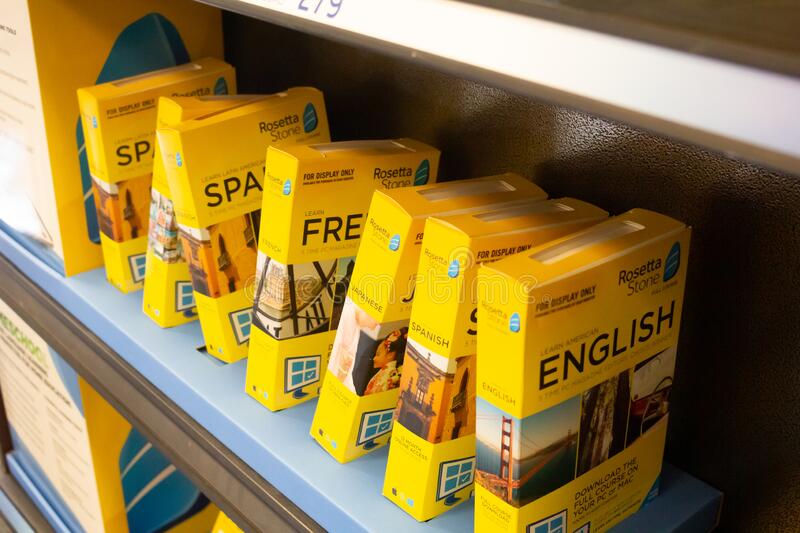
This monster of a word has five different characters and five different syllables. It’s a complicated tongue twister, and very awkward to say. “But,” I thought to myself, “if this is how the Chinese say supermarket, then this is how they say it, and I’m going to learn it.”
So, I spent all this time memorizing 食品杂货店, walking around the streets of Minneapolis, muttering “shí pǐn zá huò diàn, shí pǐn zá huò diàn” to myself. I finally memorized the word, and came to China confident that I could say “supermarket”…
… only to get here and realize people don’t say that at all. They say “超市”, or “chāo shì” which is much, much easier.
Rosetta Stone lied to me (sort of)
What’s the point of learning a language deeply if you aren’t learning the right words?
Okay, so technically, 食品杂货店 does mean “grocery store” or maybe more accurately “food stuff sundry goods shop.” But, it’s not at all what people say on a day to day basis. Chinese people don’t want to bother with five-syllable monstrosities either. They just go with the simple, easy to say 超市.
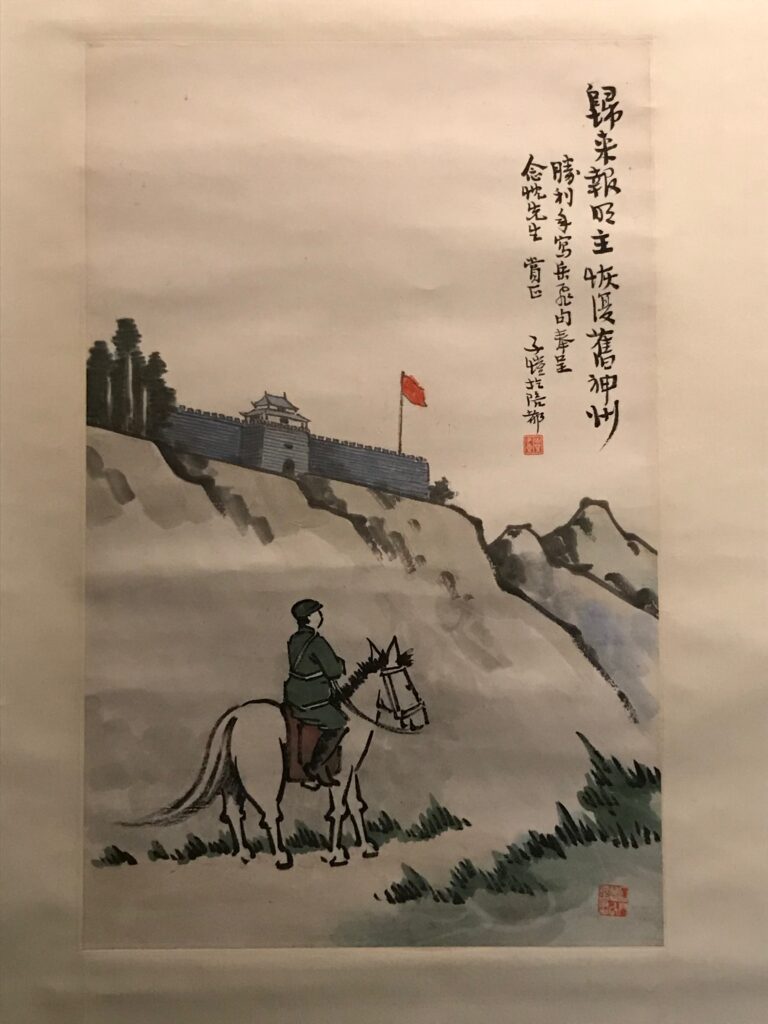
The problem with Rosetta Stone is that it takes a very cookie cutter approach to language learning. You buy the Chinese Rosetta Stone and you get the same pictures and sentence patterns as the Spanish Rosetta Stone, just in Chinese. Everything is forced into the same pattern, regardless of how people actually talk.
Maybe it works okay with European languages, since they are more or less similar to English, but it’s not a good approach for Chinese. (Although, I did get embarrassed in Nicaragua when I asked to “sacar una foto” instead of “tomar una foto”, so maybe it wasn’t so great for Spanish either.)
Here’s another example: in Chinese people say 怎么样?(zěnme yàng) all the time. It sort of translates to something like “how about it?” and is used to ask simple questions like “how was the movie?” “how are you?” etc. It’s a very common phrase and very useful in Chinese.
I got up to the fourth level learning Chinese in Rosetta Stone and didn’t see 怎么样 once.
What to use instead of Rosetta Stone for learning Chinese…
I know people who swear by Duolingo. These same people are very bad at speaking Chinese.
I don’t know if it’s their fault or Duolingo’s. Based on using Duolingo for about five minutes, I think it suffers from the same problems as Rosetta Stone. They try to make the language conform to the app, rather than the app conforming to the language.
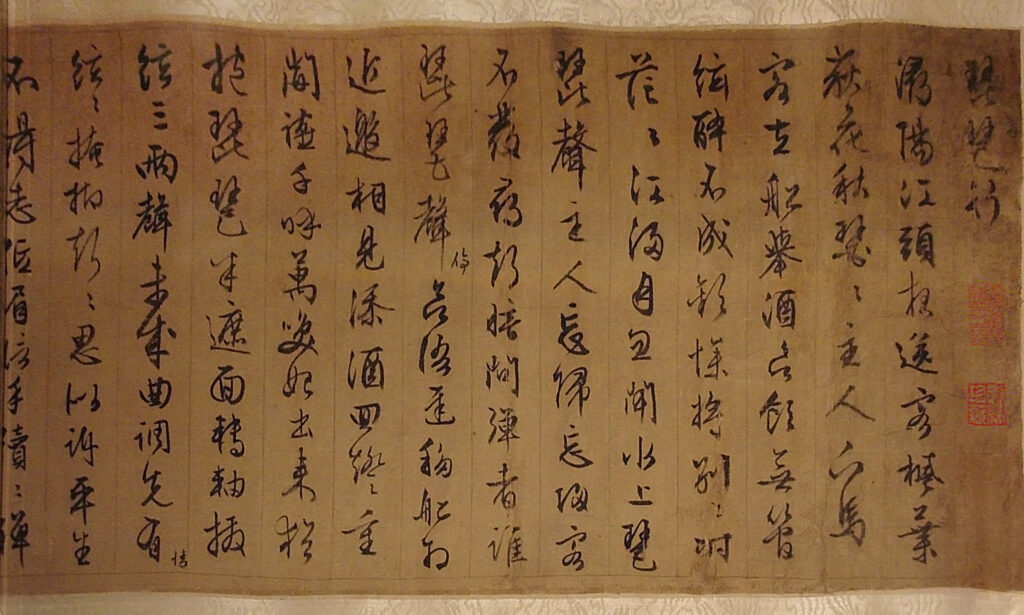
Considering how expensive Rosetta Stone is, you could just use the money to take a class. It really wouldn’t be that much more expensive, and in some cases might be a little cheaper.
If you must have an app…
I really like Skritter. It’s been helpful for me personally both for learning to read and also vocabulary. Skritter has its flaws, too. It doesn’t have much in the way of learning vocabulary or grammar and relies on translation. But, for learning the characters you really can’t do better. If you buy it, from this link, I will get some money, so that’s useful too.

Click here to buy Skritter. I think it works good.
Hello Chinese is far from perfect, but also quite helpful. It’s very similar to Duolingo, except that it’s only for Chinese. They also have some listening exercises that are very useful, with real Chinese people talking how real Chinese people talk. The downside is that it still relies on translation. They also, as of now, won’t give me any money if you sign up. I still think it’s worth it.
In the end, there’s no such thing as a perfect app. Learning a language is a very personal thing, so you have to find what’s right for you. The real test is if your method is teaching you the right thing. Can you ask where the supermarket is without getting weird looks?


Thank you for your comment, I am indeed looking for an app to learn Mandarin. But I wasn’t sure about Rosetta Stone
Glad my blog post could be helpful!